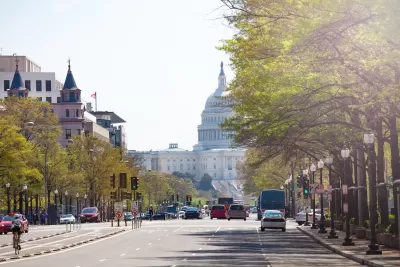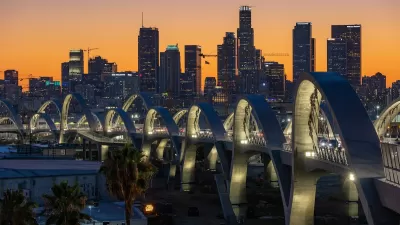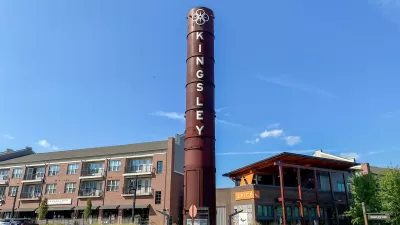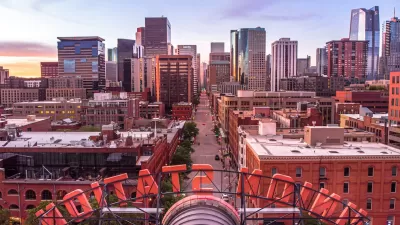To meet its climate goals and revitalize its downtown core, the District must expand its transit and urban amenities to meet the needs of a wider variety of people.

After a disheartening experience at a webinar ostensibly focused on downtown Washington, D.C.’s potential for post-pandemic economic recovery, Caitlin Rogger highlights the need for more multifaceted, multimodal investment in the District in a piece for Greater Greater Washington.
For Rogger, “Downtown recovery will take a lot more than just drivers: a key component is making it easy to get downtown without a car.” But the dismissive attitude of District officials and delayed transit projects signal a lack of willingness to engage with transit users, pedestrians, and cyclists and cater transportation options to their needs.
Moreover, it reflects an overall failure to engage with the needs of parents, elderly people, disabled people, and other groups. “Choices we make now–from employers subsidizing parking but not transit, to building multi-lane roads that are scary to cross for the young, old, and mobility-impaired, to insisting on full-time in-person work only–will determine who participates.”
Rogger points out that key elements of a successful post-pandemic recovery doesn’t necessarily differ much from things that people have advocated for for decades: “things to do, public space, room for sidewalks, bikes, and transit, good air and sound quality, public art–as opposed to space for cars.”
The District already has goals to reduce driving, lower carbon emissions, and encourage more mixed-use neighborhoods, but policy choices have to support those goals. “Workers aren’t the only type of person who can generate valuable activity–even profitable activity,” Rogger writes. Downtowns must be accessible, safe, and attractive for everyone, not just white-collar workers.
FULL STORY: Downtown DC’s recovery hinges on one word

Alabama: Trump Terminates Settlements for Black Communities Harmed By Raw Sewage
Trump deemed the landmark civil rights agreement “illegal DEI and environmental justice policy.”

Planetizen Federal Action Tracker
A weekly monitor of how Trump’s orders and actions are impacting planners and planning in America.

How Atlanta Built 7,000 Housing Units in 3 Years
The city’s comprehensive, neighborhood-focused housing strategy focuses on identifying properties and land that can be repurposed for housing and encouraging development in underserved neighborhoods.

In Both Crashes and Crime, Public Transportation is Far Safer than Driving
Contrary to popular assumptions, public transportation has far lower crash and crime rates than automobile travel. For safer communities, improve and encourage transit travel.

Report: Zoning Reforms Should Complement Nashville’s Ambitious Transit Plan
Without reform, restrictive zoning codes will limit the impact of the city’s planned transit expansion and could exclude some of the residents who depend on transit the most.

Judge Orders Release of Frozen IRA, IIJA Funding
The decision is a victory for environmental groups who charged that freezing funds for critical infrastructure and disaster response programs caused “real and irreparable harm” to communities.
Urban Design for Planners 1: Software Tools
This six-course series explores essential urban design concepts using open source software and equips planners with the tools they need to participate fully in the urban design process.
Planning for Universal Design
Learn the tools for implementing Universal Design in planning regulations.
Caltrans
Smith Gee Studio
Institute for Housing and Urban Development Studies (IHS)
City of Grandview
Harvard GSD Executive Education
Toledo-Lucas County Plan Commissions
Salt Lake City
NYU Wagner Graduate School of Public Service





























